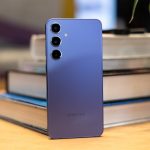Kimberly Drew has spent her career revolutionizing institutional spaces, and showing other people that dramatic change isn’t just possible — it’s the future. And now, the former social media manager for New York City’s famed Metropolitan Museum of Art is using her Twitter account to lift those around her during such extraordinary times by promoting the #CancelRent cause and sharing resources for those affected most by the COVID-19 pandemic. “Change shouldn’t be embedded and steeped in fear,” Drew told me over the phone, recently. “I want the rest of my life to be dedicated to making sure that people don’t feel that fear, because it’s an unfair way to live when there’s so much beauty out there.”
And, Drew is something of an expert on beauty — her aesthetic sensibility is as evident in her enviable personal style as it is in her art-filled career. But whereas many people who work within rarefied institutions like the Met don’t often share the story of how they got to where they are, 29-year-old Drew is as generous with her personal journey as she is with everything else.
Drew started sharing her story in 2011, via her blog, Black Contemporary Art, and now has a young adult book, This Is What I Know About Art, forthcoming, which will detail her experience as both an artist and activist, devoted to making the arts more accessible to underrepresented communities. Drew told me she wants the book to be “an opportunity” for readers “to change, learn, and shape” the rest of their lives.
For Drew, one such opportunity came from her internship at the Studio Museum of Harlem, an experience which she recounts in This Is What I Know About Art, and which, she explained to me, changed the course of her life. “Honey, they changed everything for me. I love them,” Drew said. “If that institution didn’t take a chance on me. I just know it wouldn’t have happened like this.”
Drew serves as a similar life-changing force for so many others, by emphasizing that everyone should feel like they have a right to be in spaces traditionally denied them. “It’s interesting to think on how we have enforced limits on ourselves on a personal level, how institutions are advertently or inadvertently adding to those fears,” she said, noting the many ways that historically white, elite spaces have had invisible barriers to entry. Drew is working to tear those barriers down and highlight the voices of creatives of colour, those people who are birthing a new movement in the arts, despite having been overlooked on a global scale. This kind of work takes time, but it’s also what keeps Drew going. “It is about an intergenerational shift,” she said. “Hopefully, there will be so much more room… so many more pathways” for those who want to find a career in the arts.
Drew has some advice for those who are seeking to do just that. “You need to continue to show up and challenge what they’ve decided is the norm,” she told Refinery29. “The story that I have and the work that I’ve done has shown that you don’t have to be the most traditionally powerful person in the room to see change happen. It’s about staying the course and staying committed to being in conversation with institutions to ensure that they know you’re watching as an active participant.” That’s why Drew, along with her peers, is challenging museums to incorporate diversity and inclusion programming as an accepted norm, instead of merely highlighting Black History Month, Women History Month, PRIDE, and others. People of colour, queer people, and marginalized people are entitled to reflective representation in museums, Drew said, because the art they want to see “matters” and should be available year-round, not just during designated months.
But it isn’t only the aesthetic sensibilities of museums that need to change. Drew noted that she is often inspired by the way she’s seen older members of the Black community “architect their own image,” she said. “For millennia, Black people have not been afforded the opportunity of beauty in so many ways. Sometimes you just have to take it. That agency and pining for control over one’s image, and how they’re perceived in the world is a deeply political thing to do. One that I didn’t realize the value or importance [of] until a few years ago.”
Now, though, Drew fully recognizes the importance of dressing intentionally, with the spirit of adorning one’s body — as Solange says, “Do nothing without intention.” It’s no wonder that Drew garnered the attention of Reebok, who collaborated with her to reimagine the Freestyle Hi, the brand’s first shoe designed for women within their “It’s a Man’s World” capsule. “It was great to be able to make something that people could don as a part of that gesture of self love, self respect, and just general flyness,” Drew told me. “That’s the spirit with which I adorn and dress myself.” Following the success of her collaboration with the streetwear brand, Drew is focused on the establishment of relationships between incredible artisans and sustainably run factories to produce accessible fashion.
Drew’s perspective on fashion is a holistic one, and she sees every moment on earth as an opportunity to adorn oneself. “At the top of the year, I attended my friend’s wake, and she looked fabulous — from the beginning to the end, she lived her life with so much beauty, frace, and flair,” she said. “That’s something we can all access in our ways, no matter how we express ourselves across gender, no matter how we express ourselves within the confines of socioeconomic realities.”
As Drew enters her thirties, she wants to focus even more on helping develop a system of infrastructure and ownership for Black people. Especially now, as the impacts of COVID-19 are being reflected among already marginalized communities, Drew wants to fight for a stable future for creatives — including herself. Yet, no matter how bleak the years ahead may look, Drew remains optimistic. “It’s very important to watch yourself — and that’s the most Leo thing I could say,” she laughed. “It’s really important to self-monitor, because you don’t want to lose respect for yourself. That’s it at the end of the day.”
Like what you see? How about some more R29 goodness, right here?
3 Women On The Joy Of Making Your Own Clothes
Powered by WPeMatico





